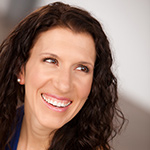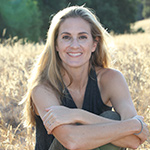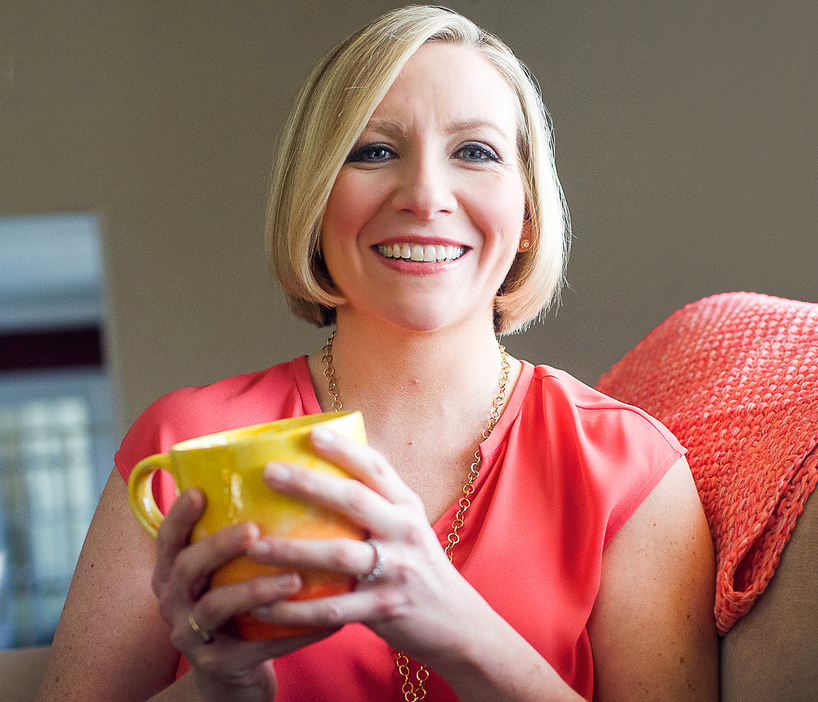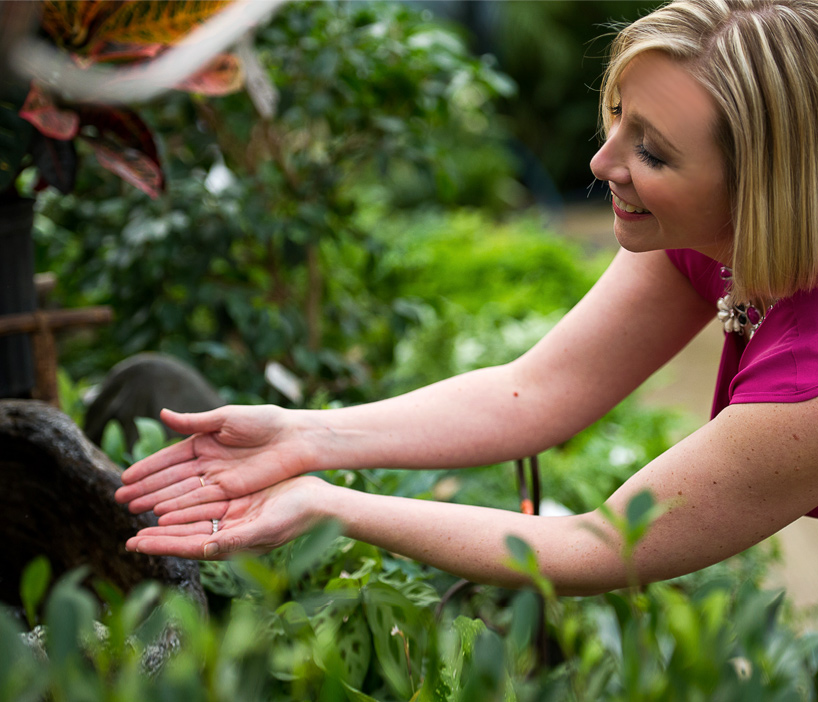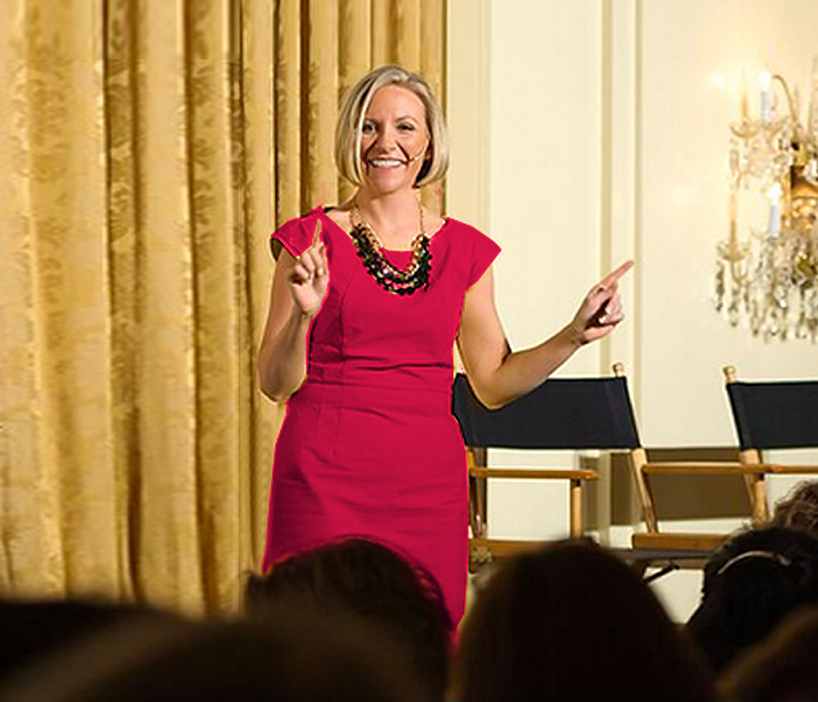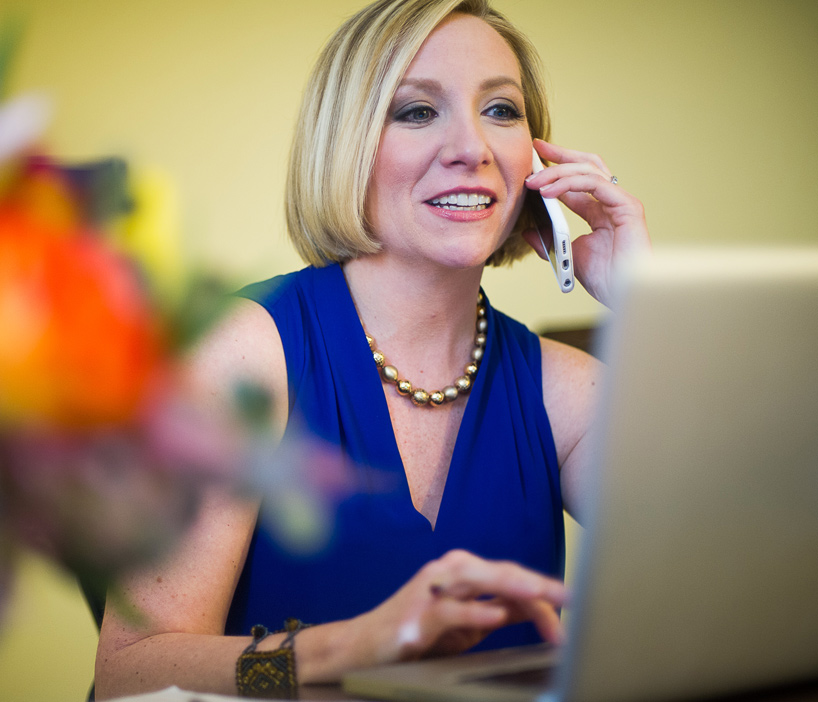You will love today’s episode. Patty is talking to Terri Trespicio, TEDx speaker and author.
Terri describes herself as a corporate poet. She uses her command of language to her clients to help them get to the heart of what they want to share. Words that move.
Today they discuss a big idea, which is also the title of her upcoming book, Unfollow Your Passion, How to Create a Life that Matters To You.
We underestimate the power of our story and our point of view.
Terri’s take on the passion topic is not the normal “follow your passion, live your purpose.” In fact, she explains that this type of advice implies that we should already know what that is and most of us just don’t.
Hear how she explains what you can do if you’re like her, wondering what in the world your passion and purpose in life are and when they will show up.
What if you get it wrong?
Well, what if you get it right? Terri explains her practical approach to this. She shares 3 questions you can ask yourself to help you move past “getting it right” to embracing what is.
Should you aim for discomfort? What is right in front of you? Comfort isn’t complacency or laziness. It’s okay to want comfort and being comfortable in your own skin.
When plans go awry what happens next.
Terri explains that “plans don’t owe you an outcome.” The consistent thing is that you may change, or the world will change, more likely both. The plan itself doesn’t matter but taking action does. Our attachment to our plans often mirrors our attachment to our passion. We think if we are well intentioned then things should always work out.
What we think we want may not be what we are “supposed” to have.
This is so helpful. You’ll find the way that Terri frames this fascinating and encouraging. Hear how you can get better at
What’s the difference between what we choose to carry and what we believe we are burdened with. This is the difference between luggage and baggage. This part of the conversation is funny and insightful. We get to decide what we take with us.
Final thought: We assume we need something outside of us, but we most of the time, we already have what we need.
SUBSCRIBE TO THE SPACE FOR MAGIC PODCAST ON YOUR FAVORITE PODCAST PLATFORM
Apple | Spotify | Stitcher | iHeart | Amazon
0:00:04.3 S1: Welcome to the space for magic podcast, where people who are led by their hearts come to learn the secrets to receiving all the gifts the Universe has for us. I’m your host, Patty Lennon. I’m an ex-type a corporate banker turned intuitive coach using a blend of common sense brain science and just a dash of magic, I’m here to help you create abundance in every area of your life and business. Welcome. Hey everyone, welcome to this episode of the space for magic podcast and OMG. I know you’re going to get a lot out of today’s guest, terri trespicio. So I met terri a few years ago, I had the privilege of speaking at her awesome event, where we were introduced through a mutual acquaintance, she put me on her stage site on scene, which is just such a crazy… Crazy leap of faith, but what I’ve come to know about terri is This is how she lives her life, she was from the hip, she trusts her gut, and she goes where the energy takes her. Now, what I’ve come to learn about her over the years that we’ve known each other is she has a very soft inside, which you might not necessarily know upfront, and I hope it comes through in this interview, because her public persona, what you see on stage or when you maybe watch her TED video, which went completely viral, she has two, and I’ve gotta check in with her and how much one of them has, but I know as of just a bit ago, one of her videos was up to seven million views, and you see someone like this, and with such a strong personality and such strong ideas and such a charming way of communicating all of it, and you think that there are no thinks in my armor, and yet in her new book, Unfollow your passion, she reveals so many of her soft sided stories that I just have a new…
0:02:14.1 S1: Special place in my heart for terri. So terri, with that welcome.
0:02:18.1 S2: Thank you so much Patty. What a sweet intro. And you know, it’s so funny that you’re like, terri is a very soft insight, ’cause you’re right, people don’t think that of me, they think I’m sort of tough as nails and really not… And I do shoot from that, but I also just trusted… I just had a feeling about you. And it turned out I was right, and if I was wrong, oh well, but I wasn’t, I was right. And I adored you from the start…
0:02:42.5 S1: Well, I adored you right back, and why don’t you share a bit about what you do professionally before we jump into our topic today?
0:02:52.6 S2: Yeah, the way I describe what I do now that I’ve had 10 years working on my own to I say, Begin to figure it out because I would have given you a different title of … was in business, but how do I describe it now, is that I’m a writer, speaker and a brand advisor, which is really a fancy way of saying that I am… I like to think of myself as a kind of corporate poet. I have a training in poetry, which means I gave a lot of time and attention to language early in my career, like in my education, and so what I do now is I use my command of language and lyricism to bring that magic to people’s work, whether it’s their business. And they’re trying to communicate with their clients and their customers. Or they’re giving a TED Talk to me, it doesn’t matter, I’m industry agnostic and platform agnostic. Well, what I love to do is help people get to the heart of what they want to share and help them put it into words that move…
0:03:47.3 S1: And you do it so well that even that first event that I spoke at, one of the main goals for the participants was that they would walk away essentially having a framework for their Ted talk.
0:04:00.1 S2: Yes, that was the appeal because everyone will… First of all, not everyone wants to give Ted talk, but anyone who aspires to speak, TED is that new standard, and it’s also the new format, while Saudis were a popular form of poetry for a long, long time, Ted is like a new format, and it’s fairly new, right? And it’s shorter now, it’s getting shorter, so like a 10-minute Ted talk, if you wanna be a speaker, it’s really important to think through your work that way. And those are some of the things we talked about that day.
0:04:30.6 S1: And that takes me to what we’re gonna talk about today, which is, I’m just gonna say it’s the topic, it’s the title of your book, very rarely would I just claim that, But unfollow your passion. So good, so good. And what I want to ask you, ’cause this is what I thought you did so brilliantly in the room for so many people that day was I’ve heard a lot of people teach tech, I should say, that give workshops have written books, etcetera. I’ve listened to a lot of it, and there’s the underlying idea that in a TED Talk, you have one idea. Yes, and even though I’ve heard a talk by many people, your room is the one place where I feel like you really pushed people to get the concept, because it’s not just an idea, it has to be an idea that what…
0:05:30.0 S2: It has to be an idea that you can really get behind, ’cause the problem I see, and I know you see this too, is a lot of people who want to speak or do speak, they say they talk about everything, you know when we can… If you tell me to talk about something, I’d find a way to talk about it, but we hesitate to pick a thing, ’cause then we think we’re gonna be defined by that thing, you don’t have to be, but getting to the heart of an idea for one, short talk means that you have to not talk about most things. That’s the challenge
0:06:03.2 S1: Is… What I love that you help people understand though, was it can’t just be any idea, it has to be… It can be an idea that other people have put out there in the same way, you have to find your own way into the idea…
0:06:19.2 S2: Yes, people will say, Oh, but everyone’s already talked about that, I say good, that means there’s a demand for that top… Do you know many Tendulkar about passion? There’s a lot… I think that we tend to underestimate how important our perspective, our POV is, and why it’s worth us doing it, you’re not more qualified to give that talk just because you have a PhD, if you would be a direct… It doesn’t really mean that people necessarily wanna hear you talk about it, right, you owe it to that audience to find that unique match between the topic, your opinion about the topic and your story and why you’re telling that story, so it should bring both to bear your expertise and who you are, and there’s no one who is the same combination as you, and so you put the book that you have that’s gonna be out in just a couple of weeks, unfollow your passion was based on your ted talk… That was the jumping off point of it. Well, yes, but it may seem like, Oh, she did a ted talk and then she turned around and wrote a book about it. No, I had no intention to write a book that had anything to do with the Ted Talk really…
0:07:29.0 S2: I mean, I gave that… It was in 2015, it was years ago. If I were gonna do I talk about it, I would have done it right away, but I just… I didn’t… So I was writing though, because I knew I wanted to write something and I said, Well, I don’t know what it is until I’ve got enough play on the table and then I will shape it. So for several years, we’re talking like five, six, seven years, I wrote and wrote and tried to figure out what is it that I wanna say… I thought I had a collection of essays, I didn’t know, I just knew I was creative non-fiction and blah, blah, blah. I didn’t know, but I shopped it around. Found an agent, you only need one to say Yes, and only one did, and then she took it to a publisher and said, You know, this person has a little bit of a platform. She could write her Baba, the publisher said, Oh well, we’re gonna have to bring back that Ted to like… That’s the thing people know, like Why not fold it into that… It was such a great talk, so I had to be guided back to it quite honestly, Patty, it was not, Oh, I did this A plus B equals book.
0:08:28.6 S1: Who… What I love about it is not necessarily that this… Like that ted talk created the book, it was the position you took on this topic, which is that you need to follow your passion, and I think… You know what I find a lot of people that I’ve talked to talk about is, what’s my purpose? Which I think this is a similar conversation to just the words or maybe it’s just semantics in the context, do you talk about it in…
0:09:00.8 S2: Well, it’s all of these things. The talk kind of challenge the question of, Do we need to have find or commit to one passion in order to make our lives meaningful? My answer is no, but then the book expounds on that, and so it’s a 10-minute talk. You need more than that to fill a book, and so I took the material ahead and was thinking about, Well, what is it that the reader needs… What did people love about that talk, it was taking something people have been told to believe and challenging it and going, Why… Why do we have to think about that way? That’s always fun to think, to be kind of counter-intuitive, and IT has to then bear out, so I said, Okay, well, what if we already chip, we’re gonna challenge this idea of having to call your passion. What about purpose? What about callings? In the book, of course, goes and knocks down every… It’s kind of icon a class style, and then it’s like, Alright, do I really believe this stuff? But back to your point about purpose, most people will tell you, passion, I think I enjoy doing purposes, the reason I’m on the planet and calling is something that…
0:10:01.5 S2: Well, I literally, I’m called to do something is drawing me toward it, kind of like the divine… They feel divine calling. If you feel a divine calling… Wow, that’s wonderful. Go ahead and follow that. But the average person goes, Oh, God, I guess I wasn’t on the short list for those calls, and then they worry that, Oh, I don’t have… I don’t know what my purpose is yet, that question drives me crazy because it presumes that you were supposed to know… I don’t understand that because I don’t know now what it is, born going… Oh yeah, I know precisely what I’m supposed to be doing from an ever… You might have an inkling. You’ll meet people, you’ll read things, you’ll try things, you’ll hate certain things, and that will guide you. How will you describe it is your choice. And if you wanna call what you do, your purpose, your calling, that’s great, but what I hear is, Oh God, I don’t know what my Passion is, Oh no, I don’t think I have a purpose. No one called me. And I don’t like that feeling. And I don’t think it’s helpful. So that’s my challenge.
0:11:01.6 S1: So if someone’s listening and they’re feeling adrift right now and they’re thinking, Oh, I know I’m supposed to follow my passion, but I’m not even sure what that is or how to do it. What I hear from a lot of people is they have this vague sense of it, it’s sort of out there in the Ethers, but they don’t have any context to it, they don’t have a container for it, what… I know ’cause I read the book, but… What would you say to that person?
0:11:32.6 S2: I would say this effort and thinking… You have to find something out there that you can attach yourself to. The reason that feels so forced, or the reason it doesn’t feel helpful is because it feels forced because you’re trying to find this match and you think that you might get it wrong. And that is the concern. I think the people think, Well, I’ll pick the wrong life, I’ll pick the wrong thing, and that can’t be… That’s not what’s gonna happen. So if someone says, Well, how can I find my purpose? I say, Well, what are you doing? It’s a matter of what’s in front of you, what are you doing now? What have you been doing? Where do you feel yourself kind of lit up, or where do you feel your skills coming to life? And it may not be, well, I always thought I’d be an astronaut, like it doesn’t have to be this title, we look for the external why I was supposed to be a doctor or a novelist, or ever… The titles and things like that don’t always help. So the question is really, does what you enjoy doing or want to be doing or the thing you most like to contribute, does it have to match up with some external idea of an industry or a job title? Most the time, it’s sort of hinders people search.
0:12:46.0 S2: So for instance, if someone says, Well, I was supposed to be a professional writer, or I was supposed to be a journalist, but I didn’t do that, and now I’m working in this and I did the wrong thing. I’d say, But what about the writing appealed? Well, I love being able to be creative and come up with things to say, Okay, so then writing in a form of self-expression and spending your time with language… That doesn’t mean you have to be a magazine editor, it doesn’t have to be like, Oh, I guess I should be a report or a journalist, there’s so many ways to use your own gifts, if you will, but I like prefer to use the word skill. There’s way, way more ways, we just tend to be zero sum about it, well, I’m in this industry. In the wrong industry. You know what I mean?
0:13:29.5 S1: Yes. Now, I wanna ask you about something else, another idea you knock down, which is getting out of your comfort zone to understand yourself better or something… Something is not yours, but why? People say that, Oh yes.
0:13:46.8 S2: Well, I think that it’s a weird thing that that advice has become so ubiquitous, this you have to get out of your comfort zone, as if aiming for discomfort is the same thing as aiming for a goal. It’s not that, Look, we’re gonna spend most of our lives mildly or vaguely or extremely uncomfortable, I mean, the moment we’re born, we’re born into discomfort because we were somewhere warm and safe and were spat out into the bright room soaking wet and stark naked. That’s not a great way to start anything. And that’s how we started life. That was not easy. And then to think that in order to grow, we must seek discomfort is nuts… We spend most of our time trying to find a shred of comfort, and the minute you find it, you’re told you should leave it, I think the intention behind that advice is to help us stomach the discomfort better, but I still say there is no shame and aiming for comfort, because I don’t equate comfort with complacency or laziness, I don’t look at… Comfort is a bad thing, you know? Why? Because having a really nice coat or a really cushy apartment cost more money, not less, that means people do put a premium on comfort, so it’s okay to want comfort…
0:15:05.3 S2: I don’t just mean creature comforts, I don’t just mean physical comfort or wealth, I mean being comfortable in your own skin, so this… And okay, so I’m also a middle-aged woman, okay. I have a different perspective than a 20-year-old male who likes to jump off buildings with a rope-tied ankle, that’s different, but I find it a little… This is this conspiracy theory is all get Patty is… Isn’t it interesting that you might tell women, and you’re not just telling women, but that women might take in this idea that I’m supposed to be uncomfortable or I am too comfortable, I say that’s a little bit tricky to be telling women that, especially when they finally get to an age where they start to feel their own power, their own work and their own ability to make waves in the world, if I were someone who wanted to derail that, I might tell people, Oh no, you’re supposed to be uncomfortable, now, we would have been uncomfortable enough, most of them are uncomfortable right now, so no, I think we should strive to expand our comfort zones, bringing more things into them, rather than think we’re supposed to leave them every five minutes…
0:16:13.7 S1: That’s some good stuff there. I love that part of the back… That was so awesome, terri. This was not the context that you told the story, but I’d love for you to share the story ’cause it cracked me up about… I think dance recital is not the right word. It was a show in your senior year of college, if I recall correctly, because essentially that story of you allowing discomfort to have a different experience…
0:16:44.0 S2: Yes, I was a senior and I was in something. I went to Boston College and I was the director of the Boston College dance ensemble. Okay, we’ll figure or group of dancers, we put on our own shows, we put together on costumes, and during one of the final performances, I went out with my top on upside down, but I didn’t realize that because we’re doing a quick change in the wings, so when I went out, the minute I started dancing my top… It was like a mesh. It was the 90s. Okay, it was a black mesh crop top in…
0:17:15.1 S1: Can you describe the whole outfit, you do it so beautifully in the book.
0:17:19.5 S2: It was a black mesh crop top with a black bra underneath and then black biker shorts and then black knee pads, so it looked like if you were looking at was very cut up, you don’t look like I was a woman whose private parts had been redacted, like we just look like PLEX strokes through it, and so it was a really hot outfit, we’re dancing like Janaki or something, and this top flip up over my boobs, essentially with my black bring and out… And what did dies, if you pull down a drape, a curtain and like overheat like the blind… It was up around my net and I was like, Oh my God, and I looked down, I was a whole boy, but you don’t want… I didn’t even notice it until I heard someone in the front row say something, ’cause they were so close, and I just looked down, I was like, Oh, my shirt on upside down. And in that moment, I had a choice. Of course, you do not wanna touch your costume, you do not wanna detract from the attention you work four months, do not only create a dance, but to choreograph it, but to get moving in unison, and the minute you break form, you’re gonna distract from this hole that you created together, and I didn’t wanna do that.
0:18:28.8 S2: And I also thought, me, who cares? It set like I was naked, I was Arnaud and whatever. But I made the decision that moment to commit… To commit to the show, to commit to it and said, It doesn’t matter, a few people will notice some won’t, and the people who do well, not even care, that was an uncomfortable moment for a second, but I also didn’t think anyone was looking at me when you’re dancing in an ensemble, there’s lots of dancers moving together, and the point wasn’t me at all, so that’s in a chapter and commitment where I talk about, sometimes the committee you do is momentary and it is critical to the whole… If I made a fuss about it or run off stage, well, I would have run off the whole piece…
0:19:07.9 S1: And I think that’s where my question was, is that you are making a case for staying in your comfort zone or being comfortable, but there is a place where embracing discomfort… Once you’ve made a commitment to move forward. ’cause you do talk a lot about the importance of this. It’s being all in.
0:19:30.0 S2: Yes, being committed to it all in like you commit to a joke, I committed to my bra hanging out and I was a little uncomfortable, but it was also funny, he realized my go-to is to either get mad at something or laugh at something, and I wasn’t mad, and I was more like, this is kind of hilarious. Is will make for a great story, and I decided just to assume the context of comfort as I was gonna pretend my costume is are normal, that’s performance. You deal with… You kinda in the moment, you kinda say, I’m gonna be comfortable with this, you don’t go, Oh man, I’m uncomfortable. What am I gonna do? Wanna do anything. I’m gonna do the steps I rehearsed.
0:20:09.7 S1: So right now, I know from talking to many people that there’s a feeling that the rug has been pulled out from underneath them, either because the things that they had planned for even pre-pandemic aren’t working out because of the pandemic, or even more recently, like, Okay, we’re back from this pandemic thing. Even though it’s still going on, and I’m re-building and I’ve made this plan and I’m doing all the things, I’m doing all the things, God, I’m doing all the things. Other humans, like whoever you think you’re reporting to, or you’re showing up for the goal that you’ve planned towards, and now things are not working out the way that you had planned, talk to what you have to say to someone in that situation… Well.
0:21:04.6 S2: You mean to everyone then, because we all had plans… I got changed in the past two years, right. Everything changed, and this sounds like a cold, hard truth, and it sounds colder than I mean it to be, but plans don’t owe you an outcome, you can make a plan, you can make any plan you want, you can plan to go to the moon, it doesn’t… That’s what I mean, you’re going unless you’re really putting it… Even if you could plan to go to the moon and you’re strapped into the rocket and you’ve got all the training, and then it’s restrain or snow or whatever, you’re not going… Plans are flimsy, we don’t… So we do make plans and we try, try as we can, as much as we can to stick to them until the world changes or we change, which is the guarantee… That is the consistent thing, so I talk about planning versus plans, which really, we’re just talking about them is two different parts of speech, of urban and on, and the verbal always take you farther than the noun, if you’re supposed to go to the beach one day with your friends, and it does Corrine, and you’re sad.
0:22:05.5 S2: Or you’re mad about it. Rain doesn’t make you mad. It’s not the rain, it’s that the plan and the outcome you had envisioned doesn’t match your reality, that’s the problem, and of course, we know that’s called an attachment and attachment to outcome, which Eckhart Tolle talks a lot about, is the burden of psychological time what you expect is supposed to happen, it doesn’t, or we’re grateful-ness about what didn’t happen, so… Yeah, I mean, look, I realize that every book is idiosyncratic to that author, and as someone who doesn’t love planning and is quick to change it if need be, this comes a little more easily to me, but I work with a lot of financial planners, in fact, was on one of their podcast recently, they don’t like to let go of plans, but then they realize that the plan itself isn’t worth anything if you’re not able to flex and bend and evolve with… Or for it. But I don’t know, I’m trying to figure out if this is Patty… Such a breakthrough idea. Certainly, everyone knows there are two different things, but I think we were full parent way, that plans, if we intended them and we did all the right things and we were good girls and boys, that outcomes would be rewarded to us, like we would get what we planned and we all know how it doesn’t work that way.
0:23:23.2 S1: Yes, yes, we definitely know that. We definitely know that in 2021. Well, I think one of the things I talk a lot about here is that you can have… Having a plan is good, like taking action is good, ’cause that’s your… What I call 100%. You do your 100%, and then the Divine takes over. The thing is, the Divine may not always agree with our destination. That’s right. So it’s not that the divine saying, Screw your plans. It’s that she’s saying, I have something better in mind.
0:24:00.2 S2: We only see so far, right. We think we have headlights that show down the whole road that we’re only seeing a little bit, and whether we believe, yes, that the universe has better plans for us, or if we think it’s all just messed up, we say all everything, nothing works out and nothing… We start to create ego around it, nothing works out for me. Why don’t I get this? I mean, honestly, this connects with the passion discussion people see, but I’m passionate about X and I need to make a living doing it, the world doesn’t owe you a living because you like doing a thing either.
0:24:33.7 S1: And you talk to different… I’m gonna stop you there for a second, I’m gonna just stop you… See that one more time, that
0:24:41.3 S2: Our attachment to Plans can often mirror our attachment to our passion or purpose, because we think if we’re well-intentioned and good at a thing, maybe we think even talented or gifted or divinely made for this task, and it doesn’t work out. We’re upset ’cause we thought it was owed to us that we put on 100% and that the universe or whomever owes us the job, the path, the opportunity, and as we know, most people never get the opportunities that they think would be best for them, or that they dream up out, maybe they don’t get them. They get something else. And who’s to say, what’s better? Right. Well, God, this is a lottery winners… I say, I wouldn’t wish that on anyone. I would not wish it on anyone to win the lottery, I think there’s lots of stories of how it just sort of kind of messes of people’s lives and really, really messed up way. And so I say, you might think you wanna win the lottery and maybe you’re like, but I’d be so happy if I had this money to do this check-in with some lottery winner, so they don’t always fair the best, just ’cause I had the most of what they thought they wanted…
0:25:45.6 S2: Yes, yes. So many of those stories, but it isn’t about attachment, isn’t it for attached to what we think we’re passionate about, we’re attached to what we think is supposed to happen. Actually pay, I wanna mention one study that, and I don’t have it open in front of me, but I was a study that talked about in the book, I think it’s one published in Psychological Science, in which the Carole and a few other of her team looked at fixed mindset versus growth mindset, specifically as relates to passion, people who thought they were divinely determined to do this thing, this is what their passion is, what they’re meant to do, and then the growth mindset people were like, I don’t… Maybe this, maybe that, or however you… They’re a little more flexible, fluid idea, the people who had a fixed mindset about passion were more likely to curtail their interests in other things, so they’re more likely to a tunnel vision, and when they were given a challenging, say, an to read about the area that they said they’re passion about a really tough thing, that’d be very hard to understand, like nomen for advanced experts, the people with a fixed mindset…
0:26:50.4 S2: We’re more likely to come back and say, I guess I’m not really interested in this. Maybe it’s the wrong thing, they were more likely to dismiss it totally, they just weren’t willing to hang in there where the people with the growth mindset or we’re like, Well, maybe I’ll learn it, maybe they have more… They give themselves more of a spectrum of opportunity where the fixed mindset people even about passion did not necessarily far better.
0:27:14.6 S1: So good. So you probably one of my favorite stories more because of the happy ending in the book is about you losing your luggage and you have that interwoven with the story of your friend having lost her luggage, and that’s told in the context of luggage versus baggage, but I think what I wanted to talk about first is the fact that the luggage not being there ended up… Although it didn’t… You weren’t comfortable. You got a better ending.
0:27:49.2 S2: Yes, I am forever afraid that I’m gonna lose luggage always, and then that had happened, everything… I’ve been… A lot of things I’ve been really afraid of. Patty happened, I was afraid of getting really sick… Well, I wasn’t home. That happened, I almost died from sepsis once when I was on a business trip, afraid to lose my luggage, I lost my luggage. It’s like, careful what you’re afraid of because it might happen and then you find out, Oh, okay, I can survive this, but it’s not like I would wish anyone lost luggage, but it brings up the question of what we’re… What we choose to carry and what we believe we are burdened with, and I make the distinction in the book between luggage and baggage, and I really… It’s just always bothered me, the term baggage because it’s usually a term that we use to project what someone else has like, Oh, I can’t date him, ’cause he’s got kids in the Zec wife, I got too much baggage. Or she gets so much baggage because she was a… No, This happened her… It’s sort of a judgy thing, and if you say about yourself or you’re being self-judgy, and I thought I hate that term, I hate that we say that because we’re making assumptions about how people fare in their own situations, there’s people who’ve lost everything and they don’t have baggage, meaning they’re not emotionally weighed down, they’re able to recover and be resilient, well, others have lost less, but hang on to a more luggage on the other hand is something that we pack ourselves because I’m so completely anal about large, I’m really careful with how I pack and what I choose.
0:29:23.7 S2: And so the reason I love it as a tool and as a metaphor is that we get to decide what we take with us from one thing to the next, we don’t always get to decide if it’s gonna make it there, I might back… You’re looking to my Donati like the idea of intentionally packing what I bring with me so I don’t end up settled with baggage that I didn’t want.
0:29:47.9 S1: So I love that, I love that clarity. And you do such a good job in the book describing that more… I do wanna go back though to the actual story, so
0:29:58.6 S2: The actual story of me losing it… Yes, I was in the Middle East traveling with my uncle, my Uncle Bob, who was a priest and a professor, and he took a study group to the Middle East every year back then. This was a long time ago. And more than 20 years ago. And so I had never been to that part of the world, I’d never been to Jerusalem. It was a really big trip and my baggage, he used to never let us check baggage, this is my first trip, and he was like, Fine, I was his favorite knees, he let me bring a bag, I checked a huge double Nicolas and I was there having needing special things like amphibious power to walk through ruins, and I was so mad I didn’t have it, and I said, Oh, I can’t… I can’t really be here ’cause I was supposed to have my stuff with me, and then I was like, Okay, well, you don’t have your stuff with you, and I was mad about it, and I was allowing myself to feel mad about it, but I was like, Well, guess what? You’re on this trip.
0:30:51.4 S2: This is a once in a lifetime experience. You just go and deal with it and do what you’re gonna do. So I did it, I was gonna go, but I realized I could really live by deciding to be there, by deciding to be present, not just hung up on the fact that I didn’t have the right footwear and that night… This was a few days, like the luggage can come for a couple of days, like two days, three days almost. And that night, we got back after this big excursion, it was kind of scary and fun, and we got home and back to this place where we were saying this convent essentially an in… And that’s how my Lookit shows up, and I say it, it was like a Rom-Com where the ex-boyfriend comes back and you’re like, Oh my God, I had almost just forgotten about you, and it turns out you’re not all that special, and that’s exactly what happened. I cut the long Tom, my logo just here, I’ve been waiting for it, and I opened it and I was like… I was like, Alright, there’s my stuff. It wasn’t as exciting as I thought it was gonna be to get my luggage, and I realized I already had what I needed, but we assume we need something outside of us, and we usually can get by just fine.
0:31:56.6 S1: And I think what I found so beautiful about that story is, here you are in this book, explaining to us make plans, but don’t get attached, you know it’s okay to want comfort, which essentially what you packed in your luggage was to make sure you are comfortable and then yet understand that it may not work out that way, and you bringing in my stick about from the divine perspective intervening, is that… What a beautiful gift to God, in understanding like you had this deep attachment to having all the things in your luggage and to really learn through this discomfort that you’re okay without that, that doesn’t mean you can pack your luggage exactly how you pack it for every other trip going forward, but you’re never going to go on a trip again thinking… It’s that important.
0:32:51.5 S2: That’s right, I always would say… My mother always say be like, Oh, it over, get them, ’cause I still… I mean, look, I’m not the most easy going travel, I’m still nervous on my California, forgot this charge. I forgot anything. My mother would always be like, Whatever, you forget. You buy it on the way, you’ll get it if you need it, and I decided to trust that I will be able to get it if I need it, but here’s the other thing, because I was the one person whose logo shouldn’t show up. Also, this group of people I was traveling with whom I did not know they were strangers to me, they kind of took me under the wing, one woman came and brought me her flip flops, another came with a night gown, I sort of became their project, and they kind of wanted to take care of me and they… I allowed them to… I was kind of in a vulnerable position, and I was the youngest one of the group and all this, and they kind of took care of me, and that kind of helped the bonding in a way… You know what I mean? Like I got to be close with them because I had needed them from the start, and that will go further than you think…
0:33:47.7 S1: Yes, yes, and I love that because it’s such a testament to sometimes with all your plans and all your checklist and all the everything you did to make what you want happen, something different happens, but maybe in that vulnerability and that discomfort, you are being opened up to an experience, your soul actually needs more than your mind, and who’s to know…
0:34:13.7 S2: If I could say I’m so annoyed, some people would spend a long time glas mad that I have, they might not allow the lesson to come and you say lesson, I might say my brain will do whatever Aten to rationalize to make me feel better. And that’s fine too, that’s the brain seeking some kind of comfort in the pattern this is meant to be, and the kind of thing where we say, Well, it all worked out, didn’t it, it all worked out. And that somehow always does…
0:34:40.1 S1: Yes, it does.
0:34:41.7 S2: Until it doesn’t. But what does that even mean anymore? Like, I just give up trying to know, I just say I’m just gonna kinda take the ride, and I think that’s the big message in this book for me, I don’t know what I’m gonna… Let you say what you think it is, but that was what I walked away from this book with was this deep sense of calm the fuck down and go for the ride, and trust that you already have so much of what you need. I mean, I know that sounds a little cliche, but we so often underestimate what we bring to the table, and I’m one of those people I always think like, Oh, I didn’t learn this and I don’t know enough about that, and I get the same doubt and insecurity as anybody else does, but this book, I wrote it partly for myself too, it sounds like I have all the answers, the book is sort of… It’s going to ideally serve the reader the way the reader needs… That’s the goal, because I’m not like, Do what terri does, do what? How to do exactly as I do it.
0:35:43.9 S2: No, no one’s life is the same, but if I can free people up to question, Okay, how important is this? Does it really matter? Really, why do I feel this pressure to do this thing, where is that coming from whose agenda is this? If I can parse that out and understand, I’m making choices because I’m making them for what I think is best, not because I need to please someone else or because something else… Can I get clear on that? Because if I can’t get clear on that, then I can’t claim to be free, and I will tell you about it, I don’t think most people necessarily want that level of freedom and sovereignty, because then it also means that if it doesn’t work out, they have known to blame but themselves, and there’s plenty of people who would rather blame situations, not take the leap and just blame the situation, which is better than messing it up. And that’s the fear.
0:36:32.9 S1: Yes, yes. And even before you even start to see that, what occurred to me too was, I just popped into my head was waiting for your passion to reveal itself or your… Whatever your purpose, your calling. It also can be an excuse to just not… Go forward.
0:36:54.3 S2: That’s exactly right. And Moon does it all the time, it’s like, Stop Waiting. What are you waiting for? It, there’s an element of the damsel in distress that I don’t like, that is like if you’re really good and you put your head down like the prince, Purpose passion will come save you from obscurity or drudgery or whatever, and you’ll be lifted up this idea of someone coming to save us is a very dangerous one because it means that we will not take action ourselves
0:37:25.9 S1: So good and ultimately, it’s a very hopeful message in the book in that you don’t need someone to save you, you actually are so much more in a position to have compelling and fruitful and meaningful life, and the keys to how to make that happen, or what you share here in this book, that’s the goal. Can we look at our lives differently so we can get different things from it without thinking we have to be fixed, without thinking things have to last forever, without thinking… We have to pick one thing and stick with it. That just isn’t what life has to be, so if there was one thought or one focal point that you wanna leave, this person is listening right now with, what would it be…
0:38:18.2 S2: It would be that when you get this idea in your head, this no-win situation where you think in order to do the right or better thing, you have to then run out on everything else or end everything else, or that everything was a mistake that all or nothing thinking, of course, is not helpful, and when we think, Well, I’m not good enough ever and I won’t be… Oh, that’s another way of looking at As all As on off switches and it’s not… Your whole life is one long conversation that you’re having with other people, they’re having with your work, and that you’re having with yourself, and conversations move and change their living things. We’re not a sack of achievements on a LinkedIn page, we are not just what our last picture says of us or our profile picture, we’re so much more, and I don’t think we quite give ourselves that credit, so give yourself the time, the bandwidth, the willingness to see all that you’re capable of instead of always trying to find the right slot to stick yourself through, ’cause that’s not actually how humans work and it’s undermining what life can offer you.
0:39:24.9 S1: Excellent. So your book will be out on December 21st, is that right? Right, but it’s available for pre-sale. Right now.
0:39:33.1 S2: It’s worth doing the pre-sale because we’ve got a lot of fun bonuses and clubs and things like that that we’re gonna be running, so… Why wait? Don’t wait at Conway.
0:39:43.4 S1: We will put the links to all of that in the show notes, is there… Where do you want people to connect with you?
0:39:49.6 S2: Well, for the book, if you wanna be like, Let me look into this book a bit more, just go to unfollow, your passion dot com, that’s where you’ll find everything there, but to find me, I’m on all the things, a, on all the platforms. And also at Teresa dot com. So it’s the easiest thing in the world. You might not be able to find your passion present, but you can find me very easy.
0:40:08.1 S1: I love it. So good, thank you so much for being on a… And for you listening, thank you for hanging out with us, I can tell you, terri is just such a warm-hearted, honest teacher, and you will feel that inside the pages of this book, so we definitely go order it, get in on all the good bonuses and all the fun stuff, and have an amazing day and need space for at. Hey, thanks for listening. If you know someone who needs to hear this message, please share this episode with them, and if you’re feeling really generous, I’d love for you to leave us a review at your favorite podcast app, it helps us reach many more people and it fills my heart with so much joy when I hear what you have to say about what I’ve shared. I’m cheering for your success, have an amazing day, and don’t forget. Always create space for Magic.
0:41:18.2 S2: This podcast is part of the sounded bicep in network. Sound advice, FM, women’s voices, amplifie.
Thanks for being here and reading my message. I want you to stay connected with me so that I can share all future communications with you.
Please enter your name and email below to join my community.
Success! Thank you for joining. You'll receive a confirmation in a while.

